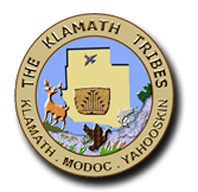FOR IMMEDIATE RELEASE
Date: June 15, 2023
Contact: Ken Smith, Public Relations Director
kenneth.smith@klamathtribes.com; 541-783-2219 ext. 147
Supreme Court Upholds Indian Child Welfare Act – A Resounding Victory for Indian Sovereignty
CHILOQUIN, Ore. – On Thursday, the U.S. Supreme Court upheld the Indian Child Welfare Act in a 7-2 decision in the Haaland v. Brackeen case, overturning a Texas federal court judge’s decision in 2018, ruling that the Act was unconstitutional. In addition, the Supreme Court rejected that the Act places undue burdens on states and that it was race-based. For decades, the Indian Child Welfare Act (ICWA) has been recognized by child welfare experts as the gold standard in child welfare practice.
Haaland v. Brackeenis a lawsuit that was brought by the state of Texas, (previously by Indiana and Louisiana) and several individual plaintiffs: Chad and Jennifer Brackeen, along with other non-Native couples seeking to adopt children. They alleged ICWA is unconstitutional and discriminatory with decisions on adoption and child placement to families based on race, and forced states to carry out federal mandates. They also argued that Congress lacked authority to pass the Act and it was anti-commandeering. The case worked its way through the lower court, finally ending up in the Supreme Court.
The Protect ICWA Campaign – made up of the National Indian Child Welfare Association, the National Congress of American Indians, Native American Rights Fund (NARF), and the Association on American Indian Affairs – released the following statement in response to the Supreme Court’s decision in the Haaland v. Brackeen case:
“We are overcome with joy that the Supreme Court has upheld the Indian Child Welfare Act (ICWA), which is widely regarded as the gold standard of child welfare. To fully understand the implications of this decision, we are conducting a thorough legal review and will provide in-depth analysis this afternoon. One thing is certain: ICWA is crucial for the safety and well-being of Native children and families and the future of Native peoples and Tribal Nations. The positive impact of today’s decision will be felt across generations.”
The ICWA receives wide support from a diversity of stakeholders both within and outside of Indian Country. At the lower court in Brackeen v. Haaland, 486 Tribal Nations, 59 Native organizations, 31 child welfare organizations, 26 states plus Washington DD, and 77 members of Congress offered support for ICWA.
“Today’s decision affirming the constitutionality of ICWA is a major victory for Tribes, tribal families, and tribal children and it should put an end to the challenges to ICWA and the broader challenges to tribal sovereignty,” stated NARF Executive Director John Echohawk. “NARF is honored to have worked alongside all who stood to defend ICWA―including over 500 Tribes, dozens of states, current and former members of Congress, the nation’s leading child welfare experts, former foster youth, medical experts, and legal experts. I hope Indian Country takes time today to pause and celebrate this victory, hug our children, and give thanks to our ancestors who have walked with us during each stage of the case. No matter what ICWA’s opponents might try next, Tribes will never stop working to protect and care for their children, and NARF will always show up to the fight.”
ICWA has been recognized by child welfare experts as the gold standard in child welfare practice, helping tens of thousands of Indian children and families in state child welfare systems.
Klamath Tribes Chairman Clayton Dumont said, ““Of course this decision is critically important for stopping those who would turn back the clock on tribal peoples’ ability to protect our children. But it is equally consequential because it underscores the long-understood reality that American Indian identities are first and foremost a function of our status as citizens of sovereign tribal nations that predate the United States—a status memorialized in our treaties with this country. Too many Americans need to be reminded, as the Supreme Court has just done, that we had these identities long before the European notion of ‘racial groups’ was constructed.”
Klamath Tribes General Manager George Lopez stated, “What a great day for The Klamath Tribes and all of Indian Country. With the Supreme Court upholding ICWA it instills in me a great respect and pride for United States. I am grateful for the advocacy of all Tribes and various non-governmental agencies and the work that continues to protect Native children and families.”
Supreme Court Justice Amy Coney Barrett delivered the opinion of the court, in which Justice John Roberts, Sonia Sotomayor, Elena Kagan, Neil Gorsuch, Brett Kavanaugh, and Ketanji Jackson, filed concurring opinions. Justice Clarence Thomas and Justice Samuel Alito filed dissenting opinions.
The petitioners challenged that ICWA was unconstitutional on multiple grounds. “They asserted that Congress lacks authority to enact ICWA and that several of ICWA’s requirements violate the anticommandeering principle of the Tenth Amendment,” it was stated in the court’s majority opinion. “They argued that ICWA employs racial classifications that unlawfully hinder non-Indian families from fostering or adopting Indian children. And they challenged §1915© — the provision that allows tribes to alter the prioritization order—on the ground that it violates the nondelegation doctrine.”
In Barrett’s opinion, she wrote: “The court “recognized Congress’s power to displace the jurisdiction of state courts in adoption proceedings involving Indian children…Petitioners contend that no source of congressional authority authorizes Congress to regulate custody proceedings for Indian children. They suggest that the Indian Commerce Clause, for example, authorizes Congress to legislate only with respect to Indian tribes as government entities, not Indians as individuals. But this Court’s holding more than a century ago that commerce with the Indian tribes, means commerce with the individuals composing those tribes,” United States v. Holliday, 3 Wall. 407, 417, renders that argument a dead end.”
The ICWA was enacted in 1978 by Congress and considered a landmark law, following a congressional investigation that discovered one-third of Native children were taken from their tribal homes and placed with non-Indian families and organizations with no tribal affiliation. The ICWA allows American tribes preferences for the adoption of Indian children.
In its decision, the Supreme Court’s support of the Indian Child Welfare Act and rejection of all the challenges is a resounding victory for Native American tribes, keeping in place a law that safeguards tribal communities and their children.
About The Klamath Tribes
The Klamath Tribes primary mission is to “protect, preserve and enhance the spiritual, cultural and physical values and resources of the Klamath, Modoc and Yahooskin Peoples by maintaining the customs of our ancestors.” The heart of Tribal life is centered in the area of Chiloquin, Oregon and includes 12 Departments, Health Clinic, Childcare Center, Tribal Court, goos oLgi gowa Center, Research Station, and three tribal enterprises. The Klamath Tribes’ 12 departments facilitate service delivery to multiple aspects of tribal life, including health and fitness, education, economic development, social services, cultural preservation, natural resource protection and more. For more information visit https://klamathtribes.org/.
###





